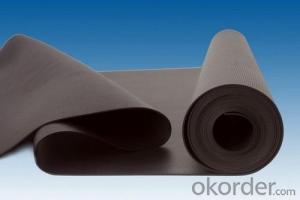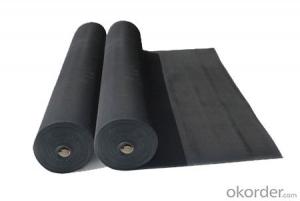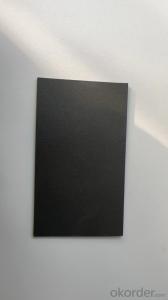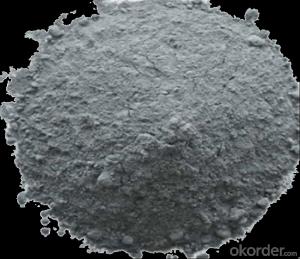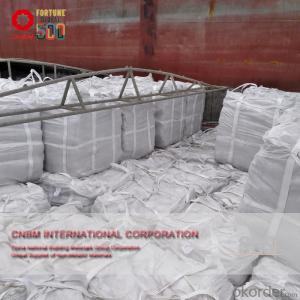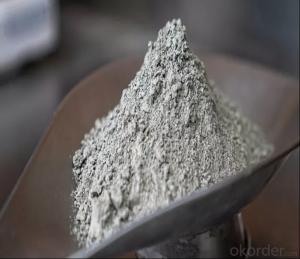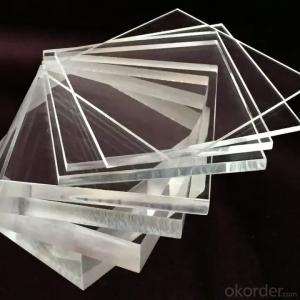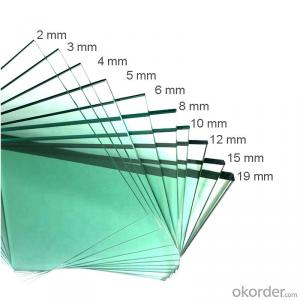EPDM High Polymer Waterproofing Membrane
- Loading Port:
- China main port
- Payment Terms:
- TT OR LC
- Min Order Qty:
- 5000 m²
- Supply Capability:
- 100000 m²/month
OKorder Service Pledge
OKorder Financial Service
You Might Also Like
Product Description
1.EPDM Waterproof Membrane / Roofing Material / Sheets Roofing
2.High tensile strength.
3.Good elongation.
4.UV resistant.
5.Anti-corrosion.
Product characteristics
1.Excellent anti-aging performance, service life can reach 50 years;
2.High elongation, high tensile strength, heat treatment size change small;
3.Plant root penetration resistance is good
4.Good low temperature flexibility
5.Application is convenient, overlapping is firm and reliable, no environmental pollution;
6. Resistance to chemical corrosion, can be applied to special places;
7.Maintenance is convenient, the cost is low
Application:
1. Make sure the base surface smooth, clean and dry(Moisture<9%), then paint the delicated agent on the base surface. Start application till it is dry.
2. Reinforce the parts which are easy to leak, such as seam, hole, channel, wall, pipe and corner.
3. Application Method:
Lay the membrane directly. Be careful to control the overlaps of the long side and short side.
4. After application, a careful inspection is required. Make sure there is no air bubble, no fold, no falling away etc to guarantee the waterproof life.
FAQ of Waterproofing Membrane
a.Can we get some samples before place order?
Answer: We can send the free samples to you by freight collect.
b.How many years can your PVC membrane guarantee?
Answer: We will guarantee the quality for 5 years at least.
c.Which countries you ever export the product?
Answer: We export the PVC membrane to South Africa, Middle east and even European countries.
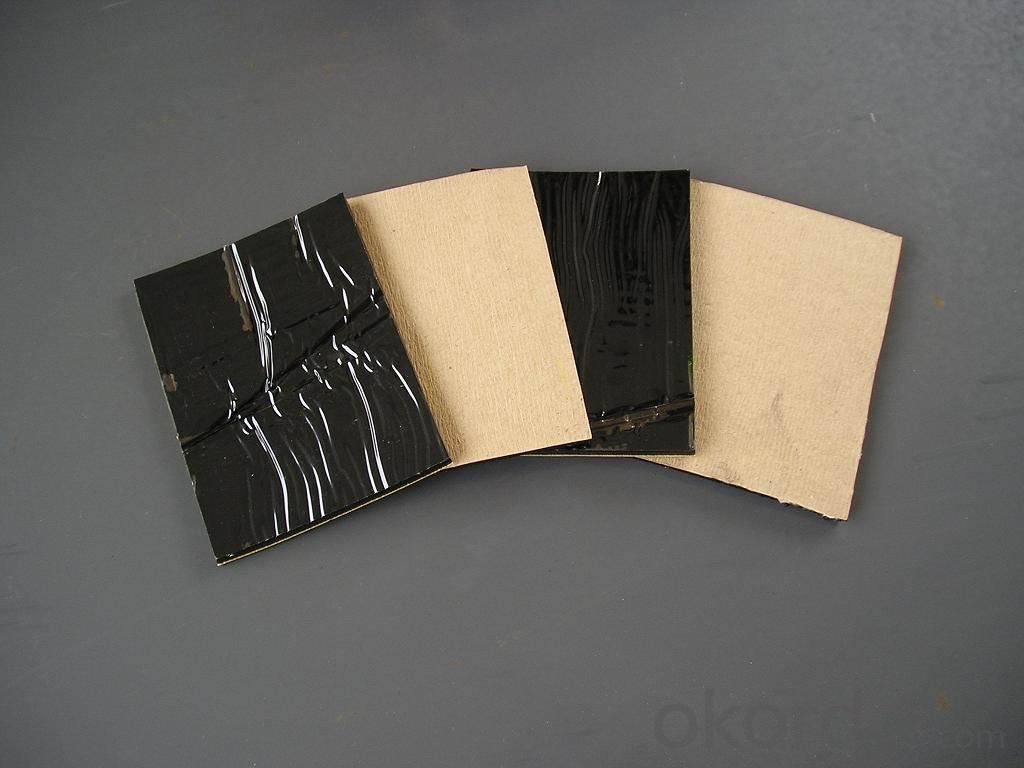
- Q:Are waterproofing membranes resistant to battery acid?
- Yes, waterproofing membranes are generally resistant to battery acid.
- Q:Can a waterproofing membrane be used for a hospital?
- Yes, a waterproofing membrane can be used for a hospital. Waterproofing membranes are commonly used in construction projects to prevent moisture infiltration and protect the integrity of the building materials. In a hospital setting, where hygiene and infection control are of utmost importance, it is crucial to maintain a dry and clean environment to prevent the growth of mold, mildew, and bacteria. A waterproofing membrane can help to create a barrier against water and moisture, preventing any potential damage to the structure and ensuring a safe and healthy environment for patients, staff, and visitors. Additionally, waterproofing membranes can also be used in specific areas of a hospital, such as operating rooms or laboratories, where the risk of spills or water exposure is higher. Overall, the use of a waterproofing membrane in a hospital can contribute to maintaining a high standard of cleanliness, safety, and durability in the facility.
- Q:Can a waterproofing membrane be used on precast aluminum surfaces?
- Yes, a waterproofing membrane can be used on precast aluminum surfaces. The membrane forms a protective layer that prevents water penetration, ensuring the durability and longevity of the precast aluminum surfaces.
- Q:Can waterproofing membranes be used on expansion joints?
- Indeed, expansion joints can benefit from the utilization of waterproofing membranes. These joints serve the purpose of accommodating movement while safeguarding against harm brought about by the expansion or contraction of construction materials due to thermal fluctuations. By applying waterproofing membranes to these joints, a protective barrier is established, effectively impeding the infiltration of water. This serves to preserve the joint's structural integrity and prevent water-induced damage to adjacent areas. It is imperative to carefully select a flexible waterproofing membrane that can endure the joint's movements without incurring cracks or deterioration. Furthermore, the employment of proper installation techniques is crucial to ensuring a watertight seal around the expansion joint.
- Q:Can a waterproofing membrane be used for a shopping mall?
- Yes, a waterproofing membrane can be used for a shopping mall. Waterproofing membranes are commonly used in commercial buildings, including shopping malls, to prevent water infiltration and protect the building's structure from water damage. They provide an effective barrier against water and are often used in areas such as basements, roofs, and foundations to ensure the building remains dry and protected.
- Q:Can a waterproofing membrane be used on below-grade walls?
- Yes, a waterproofing membrane can be used on below-grade walls. In fact, it is highly recommended to use a waterproofing membrane on below-grade walls to protect them from water infiltration and moisture damage. Below-grade walls are particularly vulnerable to water penetration due to their proximity to the ground and potential for hydrostatic pressure. A waterproofing membrane acts as a barrier, preventing water from seeping into the walls and causing issues such as mold, mildew, rot, and structural damage. It helps to keep the interior of the building dry, preventing potential moisture-related problems.
- Q:Can a waterproofing membrane be used on terraces or patios?
- Yes, a waterproofing membrane can be used on terraces or patios to prevent water penetration and protect the underlying structure from moisture damage.
- Q:Are waterproofing membranes resistant to hydrocarbons?
- Yes, waterproofing membranes are generally resistant to hydrocarbons. Waterproofing membranes are designed to provide a barrier against water penetration and are often made from materials such as bitumen, PVC, TPO, or EPDM. These materials have inherent resistance to hydrocarbons and can withstand exposure to various types of hydrocarbon-based substances such as oil, gasoline, diesel, and other petroleum-based products. This resistance ensures that the waterproofing membrane remains intact and effective in preventing water infiltration even when exposed to hydrocarbons. However, it is important to note that the specific resistance of a waterproofing membrane to hydrocarbons may vary depending on the material used and its quality. Therefore, it is always recommended to consult the manufacturer's specifications and guidelines to ensure the appropriate selection and installation of a waterproofing membrane for specific hydrocarbon-resistant requirements.
- Q:Can a waterproofing membrane be used on EPDM roofs?
- Yes, a waterproofing membrane can be used on EPDM roofs. EPDM roofs are typically made from a rubber material, and a waterproofing membrane can provide an additional layer of protection against water infiltration, extending the lifespan of the roof.
- Q:Can a waterproofing membrane be used on precast iron surfaces?
- Precast iron surfaces can benefit from the application of a waterproofing membrane, which serves as a protective layer against water infiltration. This membrane, consisting of a thin material, effectively blocks the entry of water or moisture into the surface. Its versatility allows it to be utilized on various surfaces, including precast iron. By acting as a barrier, the waterproofing membrane effectively safeguards the precast iron from detrimental effects like rust or corrosion that could arise from water exposure. This becomes particularly vital in settings where the precast iron surface is constantly exposed to water or humidity, such as outdoor installations or high humidity areas. Incorporating a waterproofing membrane on precast iron surfaces aids in prolonging the structure's lifespan and preserving its structural integrity.
1. Manufacturer Overview |
|
|---|---|
| Location | |
| Year Established | |
| Annual Output Value | |
| Main Markets | |
| Company Certifications | |
2. Manufacturer Certificates |
|
|---|---|
| a) Certification Name | |
| Range | |
| Reference | |
| Validity Period | |
3. Manufacturer Capability |
|
|---|---|
| a)Trade Capacity | |
| Nearest Port | |
| Export Percentage | |
| No.of Employees in Trade Department | |
| Language Spoken: | |
| b)Factory Information | |
| Factory Size: | |
| No. of Production Lines | |
| Contract Manufacturing | |
| Product Price Range | |
Send your message to us
EPDM High Polymer Waterproofing Membrane
- Loading Port:
- China main port
- Payment Terms:
- TT OR LC
- Min Order Qty:
- 5000 m²
- Supply Capability:
- 100000 m²/month
OKorder Service Pledge
OKorder Financial Service
Similar products
New products
Hot products
Hot Searches
Related keywords
